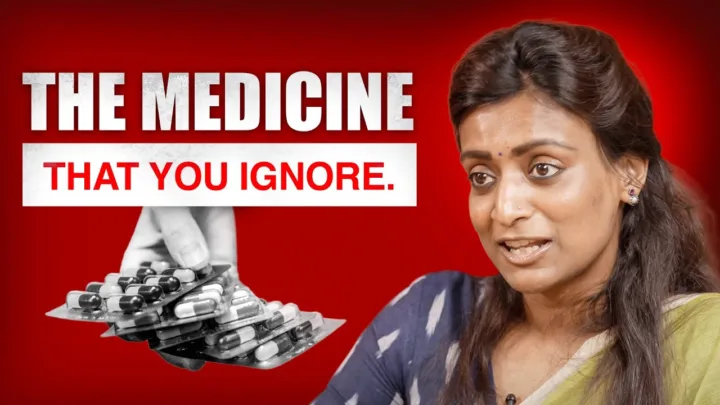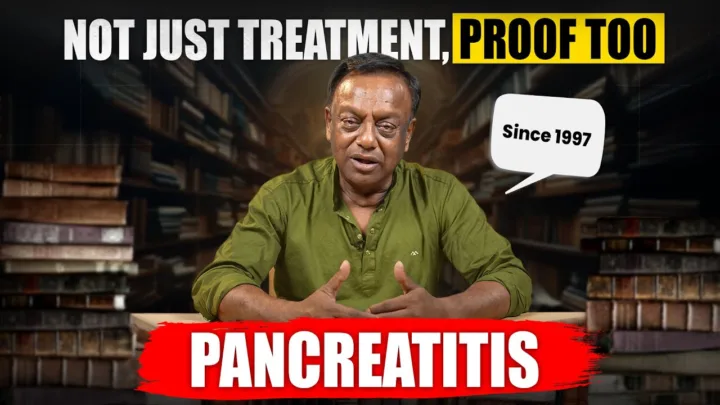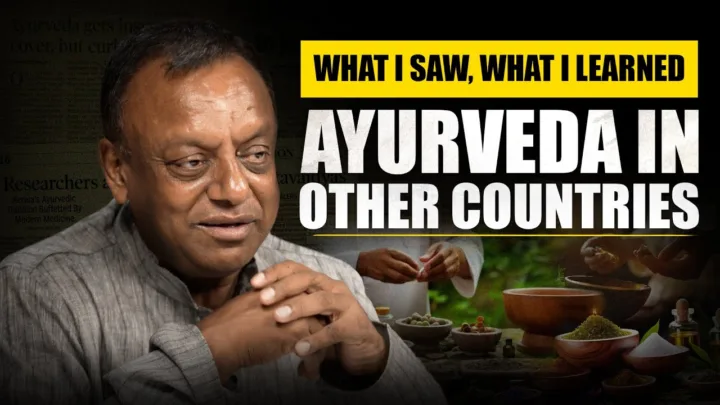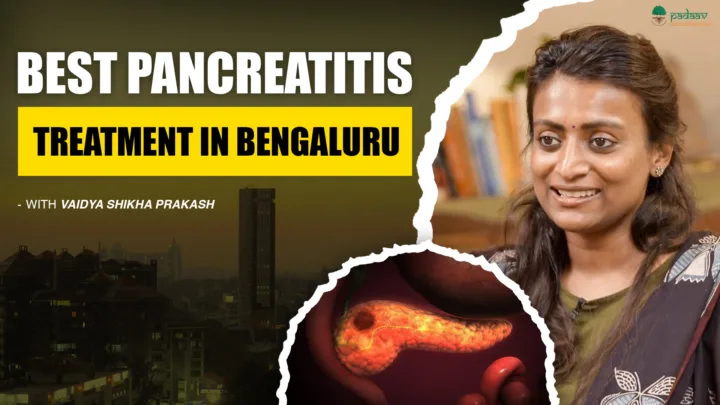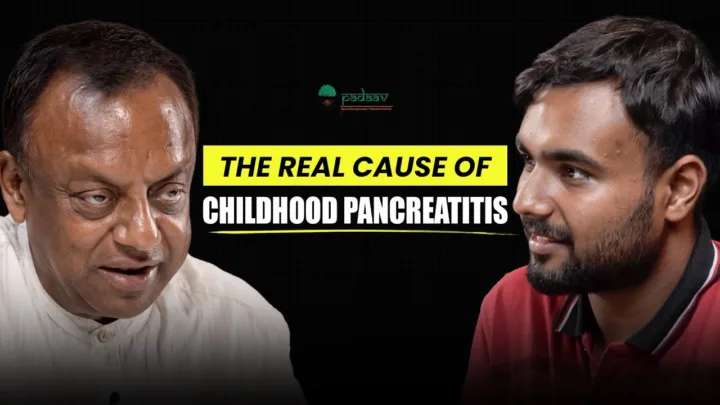The therapeutic approach at Padaav Ayurveda is rooted in decades of rigorous clinical observation and data collection, transforming the treatment of chronic and recurrent acute pancreatitis from a matter of guesswork into a structured, evidence-based protocol. This system, developed by Padma Shree Vaidya Balendu Prakash, focuses on holistic stability, providing answers to critical patient concerns regarding recovery, lifestyle, and genetics.
The Power of Data: Proving Efficacy
The foundation of the Padaav Ayurveda treatment lies in a massive clinical database, meticulously maintained since January 1997. This database, currently comprising data from over 2,300 pancreatitis patients, is the “asset” that guides their therapy.
Key Statistical Outcomes:
- 92% Reduction in emergency pancreatitis attacks.
- 95% Reduction in hospitalizations.
These figures demonstrate a powerful ability to stabilize the patient’s condition, dramatically reducing the physical, financial, and emotional toll of the disease. This commitment to data, which Vaidya Prakash calls his research, allows the hospital to treat cases with confidence, a certainty that is rare in the management of this often-unpredictable disease.
The 21-Day Stabilization Protocol
Patients are admitted for a mandatory 21-day residential treatment. This is not arbitrary; it is a crucial period dedicated to stabilization and alignment.
- Treatment Settlement: The medicine protocol is highly individualized, and the initial 21 days are used to observe the patient’s reaction (e.g., vomiting, loose motions) and adjust the doses to find the optimal regimen for that person.
- Symptom Management: Many patients arrive with intense symptoms and fear. The first 15-16 days are often marked by discomfort and anxiety. However, by the 19th or 21st day, most patients show significant improvement, transitioning from distress to being “cheerful” before their discharge.
- The “Magic” of Recovery: Patients are often surprised when symptoms like blockages improve or food becomes digestible, even after traditional enzymes are stopped. Vaidya Prakash attributes this to the medicine’s unknown mechanism, noting: “I don’t know how the medicine works, but I have seen that those with complete blockages start eating things that are otherwise forbidden.”
Addressing Key Patient Concerns
The discussions with patients and their families highlight common anxieties surrounding nutrition, career, and hereditary risk.
1. Nutritional Misconceptions (Organic and Diet)
A central focus of the treatment is fixing Protein Malnutrition, a recognized cause of pancreatitis in India (Tropical Chronic Pancreatitis).
- The Protein Deficiency: Many Indian diets, particularly those high in starch and carbohydrates (e.g., vada pav, pav bhaji in Maharashtra), lack sufficient protein, minerals, and vitamins. The protocol corrects this by providing a high-protein, easily digestible diet (including homemade paneer and curd).
- The Organic Myth: Vaidya Prakash clarifies that they do not use organic food. Their focus is on fresh, seasonal, and regional ingredients. He stresses that the supposed danger of pesticides is often exaggerated, as most common pesticides are water-soluble and can be washed off.
- The Simple Science of Food: Research conducted by the hospital found that commercial flours lacked essential minerals and fiber compared to traditional stone-ground flours. The solution is simple: eat fresh, avoid processed food, focus on seasonal ingredients, and use cooking methods that preserve the natural taste of the vegetables (avoiding heavy onion/garlic-based gravies).
2. Genetic Risk and Parenting
For new parents concerned about the risk of the disease passing to their children (e.g., an 11-month-old daughter), Vaidya Prakash offers a reassuring perspective rooted in genetics and lifestyle.
- Genetic Predisposition vs. Environment: He argues that while genes may exist, they are not destiny. Drawing an analogy, he asks: “Who said the thief’s son will be a thief?” The power of nurturing (parvarish) is paramount.
- The Role of the Mother (Maa): The mother’s role is defined as the one who knows the correct measure (maatra) of everything—food, sleep, and discipline.
- Sleep as a Priority: Referencing international practices where children prioritize 10 hours of sleep, Vaidya Prakash links sleep deprivation to pancreatitis (noting 93% of patients report poor sleep) and other nervous system disorders. The greatest precaution a mother can take is to ensure the child has undeprived sleep and adequate nourishment.
3. Returning to Work (Surgery and Mental Stress)
The question of resuming a demanding profession, such as plastic surgery, is common for working professionals.
- Protocol: Patients must complete the 21-day residential treatment and adhere to the strict protocol for an additional three months and seven days at home, avoiding exhaustion and maintaining the lifestyle changes.
- Mental Stress: Since surgery, especially plastic surgery, requires high mental acuity and is mentally taxing, the patient must avoid mental stress after the treatment period. If a surgery is long, they should take breaks in between. The treatment aims to make the patient capable of returning to their demanding career after the prescribed four-month recovery period, provided they maintain the disciplined lifestyle.
A Philosophy of Intent and Perseverance
The practice at Padaav Ayurveda is built on a philosophy of honesty, discipline, and a focus on what is achievable.
- Non-Selective Treatment: They do not treat based on probability; they treat cases that are clinically understood to have a high chance of recovery, ensuring that the patient’s effort yields results.
- The “Two-Way Traffic”: Treatment success requires effort from both the doctor and the patient. Vaidya Prakash stresses the need for patients to be honest with themselves and maintain the discipline instilled during the 21 days, acknowledging that the lack of discipline at home can negate the therapeutic benefits.
- The Ultimate Objective: The goal is to manage the disease, not to perform magic. By establishing scientific evidence for their results, the vision is to create a model that serves humanity and inspires a new generation of scientists to explore the deep potential of Ayurveda.

